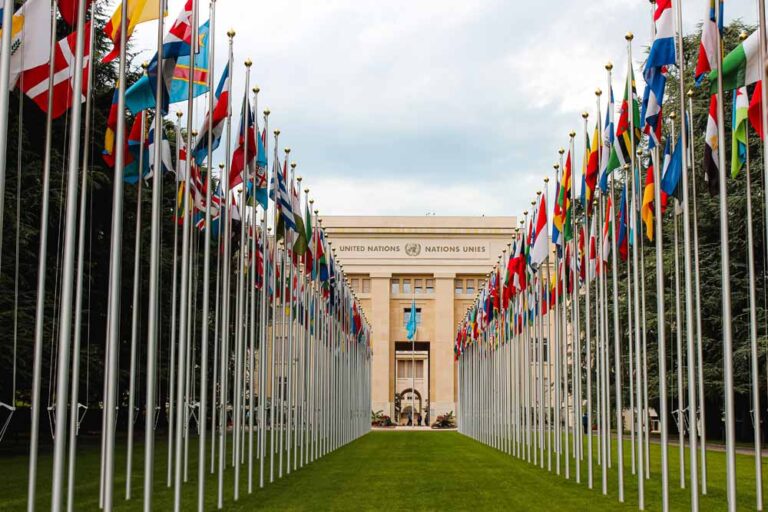
Is it just me, or do people who watch drama also tend to be the ones who create the most drama in other people’s lives? I know a few people like this. They are notorious for watching Brazilian, Indian, or other dramas on TV, where the aunt has a secret affair with someone, and then everyone finds out. As a result, everyone discusses, backstabs, nags, fights, shouts, vividly discusses, complains, and gossips about everything.
I personally believe that we already have too much drama in our lives, so I advocate that we shouldn’t proactively create any more drama. And when I say drama, I mean negative emotions. Negativity leads to more negativity, so if someone is negative towards us, it is likely that we will be negative towards someone else. This person then continues the cycle of negativity until someone stops it, perhaps by creating a positive cycle instead. They can accomplish this simply by being nice towards other people, who are then more likely to be positive and nice towards the next person, and so on, by doing something as simple as giving a compliment.
Furthermore, positivity improves everyone’s lives. Happy people, on average, outperform their negative counterparts in various areas of life, such as earning more money, having better relationships, maintaining good health, being more productive, and excelling in other parts of life.
Unfortunately, negative emotions are twice as strong as positive ones. This is because we are psychologically predisposed to pay more attention to negative things than positive ones, with studies showing that losing 5 dollars feels twice as bad as finding 5 dollars, and people tend to value something they are selling more than buying the same object.
From an evolutionary psychology perspective, this makes sense. Our ancestors spent most of their time in relaxed and low-stimulation environments, which became our biological and psychological norm. However, in today’s world, we constantly seek stimulation and if we don’t get it, we feel like something is wrong with our lives, leading to negativity and depression.
In this way, drama serves as a distraction, a form of mental stimulation, or an escape mechanism. All of these behaviors are negative and detrimental to our well-being, so it is important to limit activities such as watching drama, scary movies, news and TV, mindlessly browsing social media, and surrounding ourselves with negative people, since contrary to popular belief, a relaxed mind is a happier mind, while a craving mind is unhappy.
Instead, we should cultivate positive habits such as meditation, practicing sports, reading, spending time in nature, being around animals, surrounding ourselves with positive friends, and traveling. These activities can bring us more happiness and positivity in life.
Finally, if you’re looking to cultivate more happiness in your life, you’ve come to the right place. Here on the Optimal Happiness blog, we provide weekly happiness tips that are sure to transform your life towards more happiness. I hope you’ll explore more of what we have to offer.
Have a happy drama-free day!
















26 thoughts on “Stop Watching Drama If You Want to Be Happy”
“…a relaxed mind is a happier mind, while a craving mind is unhappy.” This should be everyone’s mantra in the world today.
It is really like that, isn’t it? It is paradoxical, but the more we crave, the less happy we are, and vice versa. The solution for happiness becomes simple: to be happy with what we already have, which more often than not is more than enough. We shouldn’t stop trying to achieve more, but we should not base our well-being on our success or failure. If we achieve more, great! If not, no problem. And even if things somehow worsen, we are still alright. This sort of happiness is unbendable, unbreakable, and is a form of optimal happiness, today and forever!
Thanks for stepping by my blog, you are so right about this, and I would say not only drama is the problem, but all the rest of genres possible
You are absolutely right. Drama is just one of the many facets of unhappiness. It is certainly not the only one and not the most important one. However, I have seen enough people watch drama shows, absorb that energy, and later project it into the world, only to be confused about why they are unhappy. That is why I wrote this blog post. As you correctly pointed out, there are other sources of unhappiness, such as horror movies, news, TV, social media, unhealthy food, and much more. I will try to address them all in upcoming posts and will definitely look to your blog for inspiration as well!
Actually I also have many opinions about it, long time ago I did a passive detox that really changed my life
I’m here to answer any questions you may have about this, hehe, just ask! Detoxes are good, as long as we know how not to accumulate more of that negative energy in the first place. Otherwise, that effort is wasted. For example, why exercise a lot if one is constantly overeating? We can make changes to old bad behaviors with new positive ones, and most of the time, this results in an automatic detox. However, for certain things like smoking, there is a residual aftereffect that can never be truly undone, not to mention the loss of human potential… Overall, it’s better to start doing “the right” action from the start as much as possible and try to improve as we go along in life :)
Much needed information for this generation of people who constantly seek stimulation without even knowing the damage they bring themselves
It seems like danger lurks around every corner, on the internet, in our shopping malls, and even inside our homes. Yes, we need to inform the current generation about these risks, but they are just so many. Therefore, it would be more efficient to go directly to the source. Even better, we should approach this problem from as many sides as possible.
I agree with you.. awareness and unlearning the learnt habituation is the only way I believe.. earlier we had the limitations naturally.. there will be only one show of Sccoby Doo for some 30minutes.. there could be another telecast but it would be the same episode.. we would just end our screen time knowing that.. or we would take turns for each one’s favorite program.. it was much easier with those limitations.. it’s quite challenging for the current generation.. can’t deny that fact also.. expecting them to be more resilient is out of the equation when we acknowledge the difficulty.. I myself used to wonder what will be my son’s challenges.. how can I help him regulate or limit himself..
I have the same concern as @Ar.Jenita. In fact, I’m wracking my brain over the question of how I would raise a child, as I don’t want to worry about whether I would be a good father. I want to be absolutely sure of this, which means considering all the important questions you are raising. We can’t turn back time, so we have to accept things as they are and how they will become. We need to be able to adapt to new circumstances, no matter how quickly and radically they change. Additionally, I have always said that “everything I’d want my child to have, I want to have,” meaning that parents often project their own unfulfilled dreams onto their children, daring and pushing them to become what they were too afraid to do themselves. However, I always wonder why someone else should be forced to do things we don’t want to do. Realistically speaking, this desire to have children and be a better version of ourselves is egotistical, and if we truly want to do something, we shouldn’t force our children to do it. We should do it ourselves, especially because we want that. Ultimately, children will do what they want to do, sometimes even doing the opposite of their parents. So I’d say let’s not have children because we want something out of them. Let’s have children because we want to spread our love through them.
Well said.. one thing that I have learnt from my parents is let the children make their own decision and take responsibility for their choice.. I try my best to stick to it.. because I know what happens when the decision making is not with the children and how those kids also turn out to be narcissistic just like their parents which I don’t want for my kid.. I wish every parents get to realize it atleast in some point of their life to let their children live their life and learn their own lessons provided guidance and warnings alone not forcing them..
If we can teach all parents this, there will be way less trauma in the world today :)
Hopefully
While I tend to avoid horror shows, my daughter loves them. I think it’s largely temperament that dictates that. To say you should avoid drama as entertainment is to say you shouldn’t learn about the world. Well done dramas teach. And drama is really too broad a category. There’s drama that lifts you up and drama that makes you cry.
People that bring drama into relationships, however, are another story entirely.
Of course, watching a drama or horror movie independently one time won’t have a lasting effect on our psyche. However, my larger point is what will happen if we watch it continuously? Take social media for example, where the content is entertaining and even educational. However, study after study suggests how bad it is for our minds to be constantly overstimulated by this media. The suggestion is to stay away from that media, regardless of how strong and unaffected we may feel about it. In the larger context of life, making these small acts won’t automatically affect our well-being. However, consistently making different small mistakes across a variety of life choices is exactly why people repeatedly tell me that on one side they are supposed to be happy, but they wonder why they aren’t.
I wrote a reply to you that’s right before your comments.
Drama the ancient Greeks performed drama — catharsis was a form of healing. I agree with Venerable Phoenix. I love a good play or film that gives me a new perspective, beautiful scenery, costumes, romance or makes you laugh…on and on so many reasons.
You are, of course, correct, Genie. However, as my father always said, “everything good is appreciated in moderation” and “too much of anything can be bad for you.” In this case, I respect everyone’s wants and desires, but I also caution for moderation. I see a pattern with drama, specifically speaking, as I mentioned in this blog post. Some people who watch a lot of drama can absorb some of that “drama” energy and start displaying it in their lives. It is by far not the biggest concern we should address as a society in the world, but maybe, just maybe, I can shed some light on some of the behaviors so people aren’t doing them reflexively, but consciously, being aware of both the positive and negatives of their actions, whatever they may be.
Hi Roman, thanks for the content. How do you measure your happiness?
Great question Jack! I’d need to write a separate blog post about this, which I will start by answering your questions. Here are the bullet points: 1) Happiness is an emotion, so it is determined by how we feel. This includes the intensity and polarity (positive vs. negative) of our emotions. 2) Happiness is also influenced by how we feel over time, such as yesterday, today, over the course of a week, month, year, or over a lifetime. 3) We can measure happiness on a scale of 0 to 10, with 0 being extremely negative and 10 being extremely positive. This scale also represents the intensity mentioned in point 1). I think that covers it, but there may be more ways that I can’t remember right now.
I have to agree with you that those who indulge in following drama create more dramatic emotions for themselves. They then seem to want to share that with everyone around them, as if to justify their own negative feelings.
Agreed Andrew, as I always say, the world is just too complex, and people get lost in terms of what they want to do and what it really takes to be happy. As such, there are many happiness-related “mistakes” people make, which just make them (and maybe others around them) unhappy. I’m thinking of gambling, drugs, alcohol, procrastination, overeating, and overstimulation generally speaking. These are more common ways people, metaphorically speaking, shoot themselves in the foot, but drama is also there, although on a lower end.
I got rid of my tv all together many years ago when I noticed that it made me depressed to watch the news, tv shows that are made to make people stupid … All those game shows, reality tv stuff that nobody needs, drama that gives a wrong image of life … Like I didn’t find much good in it so I just threw it out. Best decision of my life.
Now if I want to watch something I watch it with intent. I chose on purpose … And no I don’t have Netflix either. I just think life and real people are more important than the box.
I do keep my computer and phone though so I’m not totally disconnected but it’s with a lot more intention and limited time …
Great insights! I have made similar observations on this blog, so it seems like we are on the same page about these topics.
Pingback: 20 Ways to Handle It When His Ex-Factor Is Messing With Your Love Story
Pingback: 17 Behaviors That Mean Someone Exists on a Higher Spiritual Plane